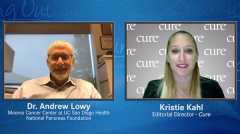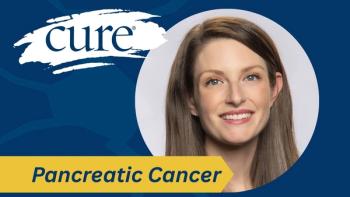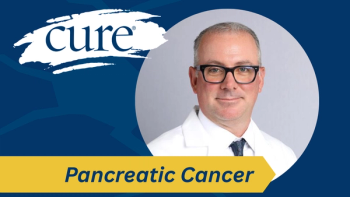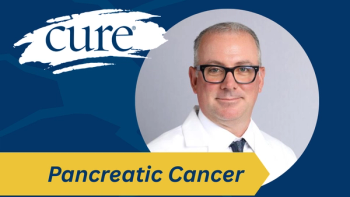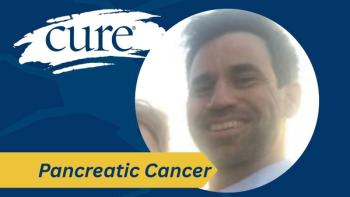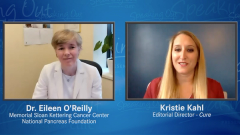
A Pancreatic Cancer Diagnosis
A Pancreatic Cancer Diagnosis
6213155316001
Kristie L. Kahl and Dr. Eileen O’Reilly
Kristie L. Kahl: What would you say is the first step that someone should take after they receive a pancreatic cancer diagnosis?
Dr. Eileen O’Reilly: The first step following a pancreas cancer diagnosis, ideally, is to seek a major center that's involved in taking care of patients with pancreas cancer. And depending on the stage, that can be surgical oncology, can be medical oncology, can include gastroenterology, if there's a need for intervention. We know that multidisciplinary, large volume centers are the ones that hope to maximize outcome, and allow a potential patient to have access to things such as clinical trials and research opportunities. And that's the now but it's also improving the future in this disease.
Kristie L. Kahl: Why should individuals also consider a second opinion after they've sought their first opinion?
Dr. Eileen O’Reilly: I think it's very helpful at the time of diagnosis of a major illness to understand fully what one’s options are before finalizing a decision, there is understandably often a perceived urgency to start treatment immediately. And sometimes that indeed is medically warranted. But often there isn't enough time to seek access to a tertiary center to evaluate trial options. And trial options are high on our list for patients who are diagnosed with metastatic disease or cancer, which is spread or to seek an opinion over a surgical oncologist who is skilled and experienced and knowledgeable in this disease. And there are lots of studies that join volume and institution in terms of places where this is done frequently, again, maximize outcome and tend to reduce the what we called morbidity or the complications after a major surgery. And that is likely true, although not as much data in the oncology world, that high volume centers, where there's a lot of focus on this disease, multidisciplinary thinking, and access to trials makes for the best outcome in this cancer.
Kristie L. Kahl: How do you think patients can become better informed, so that they can be their own best advocate when it comes to deciding their treatment options after they're diagnosed?
Dr. Eileen O’Reilly: So a way to maximize understanding of choices is what we're discussing, and additional opinions is very helpful. I think being linked to patient communities is helpful. Being linked to advocacy organizations, such as the National Pancreas Foundation, who serves as a key role in educating patients and families about resources. And there are a number of community resources related to the disease. I think an informed patient allows for the best decision making at a time when that information is key. And I think that also helps with satisfaction for patients making sure they have done their homework before finalizing where to receive their care, and perhaps, the specific choice of treatment.
Kristie L. Kahl: Why is the patient-physician conversation important?
Dr. Eileen O’Reilly: The patient to physician relationship is very important. There is trust and consideration, and a consideration of following what you're recommended. When there's an established connection, I think for a lot of people that is very meaningful at a very vulnerable time in their lives, and the support they get from not just from the physician, the whole treating team, that the nursing staff who often have an even closer relationship on a day-to-day basis, and just how the whole office looks after the patient, everything from scheduling to follow up is important. And that, I think, is part of good medical care, and making that as accessible and as practical as possible for patients.
Kristie L. Kahl: What do you think is the role of the caregiver when it comes to a pancreatic cancer diagnosis?
Dr. Eileen O’Reilly: For any significant illness, I think having an involved either family member or trusted friend, or even independent person is an extra set of years, its ability to take some notes during the discussion with the medical team. And just helping absorb, digest and understand options is very helpful. I think they're a patient's advocate to the system and help kind of smooth over some of the sometimes more difficult things to navigate whether it being access to a major system to understand clinical trial options, to appreciate side effects, and to help weigh up different choices. So I think for any person with any significant illness, you know, having an extra pair of eyes, ears, and hands is extremely helpful for supporting and guiding decision making.
Kristie L. Kahl: What would you say is your biggest piece of advice for newly diagnosed patient with pancreatic cancer?
Dr. Eileen O’Reilly: Recognize that there are treatments available. And there are a lot of resources to help to seek consultation at a major cancer center where that's possible, recognizing it may not be for everybody to seek the guidance and assistance of advocacy organizations like the National Pancreas Foundation, and several of the other major organizations in the, in the US and elsewhere, to think about participation in clinical trials, and to take a pause and to realize that while it may seem that a decision has to be made today, often there is time to just digest the choices and consider them fully. before committing to that next step. There often is not an immediacy, to start treatments immediately. That's not to say that there isn't overall and need to define a plan relatively soon. But most importantly, there are more often than not is time to choose wisely.

